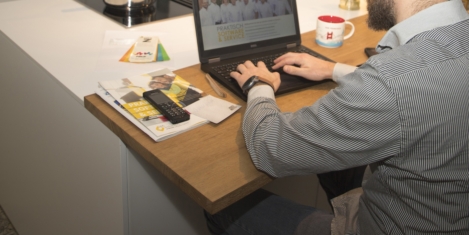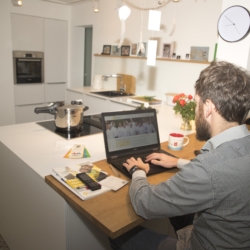To provide the best experiences, we use technologies like cookies to store and/or access device information. Consenting to these technologies will allow us to process data such as browsing behaviour or unique IDs on this site. Not consenting or withdrawing consent, may adversely affect certain features and functions.
The technical storage or access is strictly necessary for the legitimate purpose of enabling the use of a specific service explicitly requested by the subscriber or user, or for the sole purpose of carrying out the transmission of a communication over an electronic communications network.
The technical storage or access is necessary for the legitimate purpose of storing preferences that are not requested by the subscriber or user.
The technical storage or access that is used exclusively for statistical purposes.
The technical storage or access that is used exclusively for anonymous statistical purposes. Without a subpoena, voluntary compliance on the part of your Internet Service Provider, or additional records from a third party, information stored or retrieved for this purpose alone cannot usually be used to identify you.
The technical storage or access is required to create user profiles to send advertising, or to track the user on a website or across several websites for similar marketing purposes.
 The amount of change that the average employee can absorb without suffering fatigue in 2020 has been cut in half compared to 2019, according to Gartner, Inc. Amid worries about the economy, job security, their health and the health of their loved ones, employees’ capacity to take on change in the workplace has plunged significantly. (more…)
The amount of change that the average employee can absorb without suffering fatigue in 2020 has been cut in half compared to 2019, according to Gartner, Inc. Amid worries about the economy, job security, their health and the health of their loved ones, employees’ capacity to take on change in the workplace has plunged significantly. (more…)






 To mark the start of National Work Life Week, work-life balance charity
To mark the start of National Work Life Week, work-life balance charity 


 2020 has been the most stressful year in history for the global workforce and people want robots to help, according to a new study by
2020 has been the most stressful year in history for the global workforce and people want robots to help, according to a new study by 












 New research suggests that almost half (44 percent) of working carers in England and Wales, equivalent to around 1.6 million people, are struggling to cope with the pressures of balancing their work and caring responsibilities – and that a quarter (24 percent) have considered giving up their job entirely. These are the findings in a newly published report, titled “Supporting working carers: How employers and employees can benefit”, from the
New research suggests that almost half (44 percent) of working carers in England and Wales, equivalent to around 1.6 million people, are struggling to cope with the pressures of balancing their work and caring responsibilities – and that a quarter (24 percent) have considered giving up their job entirely. These are the findings in a newly published report, titled “Supporting working carers: How employers and employees can benefit”, from the 







September 21, 2020
Time to get on board with the psychological effects of working from home
by Jörg Bakschas • Comment, Flexible working, Wellbeing